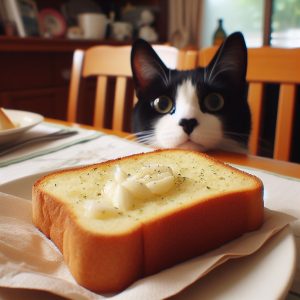Are you a new cat parent wondering if you can give your kitten sugar water? Or maybe you’ve noticed your kitten licking your sweet drinks and are curious if it’s okay.
Sugar water is a controversial topic in the cat community. Some claim it provides extra energy for active, growing kittens. Others argue it’s unhealthy and unnecessary.
So what’s the real answer? Is sugar water actually good or bad for kittens?
In this comprehensive guide, we’ll dive into the pros and cons of sugar water for kittens. You’ll learn:
- The potential benefits of sugar water
- The possible risks and downsides
- How much to give kittens (if you decide to use it)
- When it may be appropriate to offer sugar water
- Safety tips and alternatives to sugar water
By the end, you’ll know whether or not sugar water belongs in your kitten’s diet and how to use it wisely if you choose to.
Let’s start with an overview of the debate around sugar water for kittens.
The Sugar Water Controversy: Arguments For and Against
There are two main schools of thought on sugar water for kittens:
Proponents argue:
- Kittens need extra energy to support rapid growth and development
- Sugar water provides quick energy between meals
- It may help kittens transition off mother’s milk
- A small amount of sugar is harmless
Opponents argue:
- Kittens get sufficient energy from regular food
- Excess sugar can cause obesity, dental issues, and other health problems
- It can contribute to picky eating and ignoring balanced meals
- Plain water is healthier for hydration
As you can see, both sides make some good points. There are potential benefits, but also risks if overused.
So what does the evidence actually say? Let’s analyze the pros and cons in more detail.
Potential Benefits of Sugar Water for Kittens
Here are some of the theorized benefits of giving kittens sugar water in moderation:
Quick burst of energy
The main rationale is that the simple sugars provide a readily available energy source. Kittens have tiny stomachs but high activity levels, so they need frequent refueling.
A small amount of sugar water between meals may help them keep up their playtime and stay energetic. This may be especially useful right after separation from mom when kittens are still adjusting to eating solid food regularly.
Supports growth and development
Kittens experience rapid growth and brain development. The glucose in sugar water may help provide the extra calories needed to fuel this intense growth phase.
Again, this calorie boost may be most useful when kittens are first weaned off milk and transitioning to solid food.
Encourages water intake
Kittens need extra hydration to support growth and replace fluid loss from playing. The taste and smell of sugar water may entice them to drink more. This helps prevent dehydration.
Satisfies natural sweet tooth
Kittens are drawn to sweet flavors, likely an evolutionary attraction to calorie-rich foods.Allowing a small amount of sugar water provides a safe way to satisfy this natural craving.
So in theory, the rationale for sugar water makes sense. But risks can arise if overdone.
Potential Risks and Downsides of Giving Kittens Sugar Water
Sugar water for kittens certainly isn’t all upside. Here are some potential downsides to be aware of:
Excess sugar and calories
Too much added sugar can easily lead to obesity. It also puts kittens at risk for diabetes, fatty liver disease, and tooth decay later in life.
Nutritional imbalance
Sugar water lacks vitamins, minerals, proteins and other nutrients essential for proper growth. Relying too much on sugar water could lead to nutritional deficiencies.
Picky eating habits
If kittens fill up on sugar water, they may refuse regular, balanced meals. This can lead to poor nutrition despite excess calories from sugar.
Dehydration
Too much sugar can act as a diuretic, causing more urination and fluid loss. This makes dehydration more likely if sugar water replaces plain water.
Disrupted sleep
The sugar high and ensuing “crash” can interfere with kittens’ sleep quality and patterns. Good sleep is crucial for development.
Gastrointestinal issues
Some kittens may experience osmotic diarrhea, gas or upset stomach from too much sugar water at once.
Clearly, excessive or improper use of sugar water poses some health risks for kittens. But used in moderation at appropriate times, it may provide benefits without causing harm.
So how do you give kittens sugar water safely if you want to use it? Let’s go over some best practices.
How Much Sugar Water Can You Give a Kitten?
If you decide to give your kitten sugar water, follow these guidelines on amount and frequency:
For a 4-12 week old kitten:
- Amount: No more than 1-2 teaspoons per day
- Frequency: Offer no more than 2-3 times day, not with meals
For a 3-6 month old kitten:
- Amount: Up to 1 tablespoon daily
- Frequency: 1-2 times day between meals
Adjust as needed based on your kitten’s size and activity level. Very small or inactive kittens may only need a teaspoon a day. Large, energetic kittens may tolerate up to 2 tablespoons.
But remember – sugar water should be an occasional supplemental treat, not a dietary staple. Only use these amounts 1-3 times per week at most.
Too much sugar water, or giving it too often, raises health concerns. Work with your vet to determine safe amounts tailored to your kitten.
Tips to Give Sugar Water Safely
Follow these tips for safe use:
- Use plain white sugar, not honey, syrups, or artificial sweeteners which may be toxic.
- Start with just a drop or two on your finger to see if kitten likes the taste.
- Mix 2 teaspoons sugar per 3 fluid ounces of water.
- Use clean, filtered water.
- Give only room temperature water, not cold.
- Rinse kitten’s mouth with plain water after to prevent decay.
- Introduce slowly and watch for diarrhea or tummy upset.
- Don’t force it – stop if kitten refuses after a taste.
Only offer sugar water in small amounts as an occasional treat, not a daily habit. Pay close attention to your kitten’s reaction.
Now let’s go over when and why you may want to consider providing this supplemental drink.
When Sugar Water May Be Appropriate for Kittens
Sugar water is most likely to benefit kittens in these scenarios:
Weaning stage (4-8 weeks old)
The stress of separating from mom and transitioning to solid food makes extra calories helpful. A teaspoon or two between meals provides an energy boost.
High activity levels
Energetic, playful kittens may tolerate sugar water well for an extra calorie kick. Monitor weight gain and adjust amounts as needed.
Fading kitten syndrome
Sickly kittens who are underweight and failing to thrive may benefit from sugar water until their appetite improves. Always consult a vet in these cases.
Need encouragement drinking
The taste may entice kittens who aren’t drinking enough plain water, as long as sugar intake stays low.
After vaccinations
A bit of sugar water may perk up kittens who are lethargic after shots. Check with your vet first in this scenario.
Occasional treat
A few licks of sugar water satisfies kittens’ sweet tooth safely.
Outside of these situations, sugar water provides little benefit and poses greater risk of overuse.
Healthier Alternatives to Sugar Water
If you decide sugar water isn’t appropriate for your kitten, here are some healthier options:
- Plain water – Best for hydration! Adding a few drops of low-sodium broth or boiling chicken can encourage drinking.
- Wet food – Provides extra moisture and calories. Letting kittens lick broth off your finger satisfies the need to nurse.
- Kitten milk replacer – Specifically formulated with extra calories, vitamins and minerals for growing kittens.
- Diluted goat milk – Unflavored, unsweetened goat milk contains natural sugars and healthful nutrients.
- Coconut water – Provides electrolytes to rehydrate. Look for unsweetened, no-additive varieties.
- Bone broth – The gelatin provides some protein and the smell entices kittens to drink.
Always discuss supplements with your vet. But these provide hydration and nutrition without the risks of excess sugar.
8 Safety Tips for Giving Kittens Sugar Water
If you do choose to offer sugar water, follow these safety guidelines:
- Talk to your vet first – Make sure your kitten is healthy enough and get advice on appropriate amounts.
- Use sparingly – Treat it as an occasional supplement, not a beverage for frequent use.
- Don’t replace meals – Ensure kittens still eat balanced, nutrient-rich food at regular meal times.
- Avoid artificial sweeteners – Xylitol and others can be extremely toxic to cats.
- Watch for signs of illness – Diarrhea, vomiting, increased urination or other issues warrant stopping sugar water.
- Brush teeth daily – Help prevent cavities and dental disease.
- Rinse mouth after – Use plain water to remove sugar from teeth and gums.
- Stop if refused – Never force-feed sugar water. Respect your kitten’s preferences.
Follow these precautions to minimize risks and make sure sugar water remains a safe, occasional treat.
Is Sugar Water Ultimately Good or Bad for Kittens?
Given the potential benefits and risks, what’s the final verdict on sugar water for kittens?
Used sparingly at appropriate times, a small amount of sugar water is unlikely to cause harm and may provide a beneficial calorie and hydration boost.
But unnecessary overuse can definitely promote obesity, tooth decay, and other problems. It should never displace balanced nutrition, plain water, and proper veterinary care.
Ultimately, sugar water is neither good nor bad, but the dosage makes the difference.
Follow the suggested amounts and frequency limits in this article. Pay close attention to your individual kitten’s health and needs. And consult your vet about whether sugar water is recommended or not.
If in doubt, err on the side of caution and stick to plain water, kitten milk replacer formula, or nutritious wet foods for the best nutritional support.



